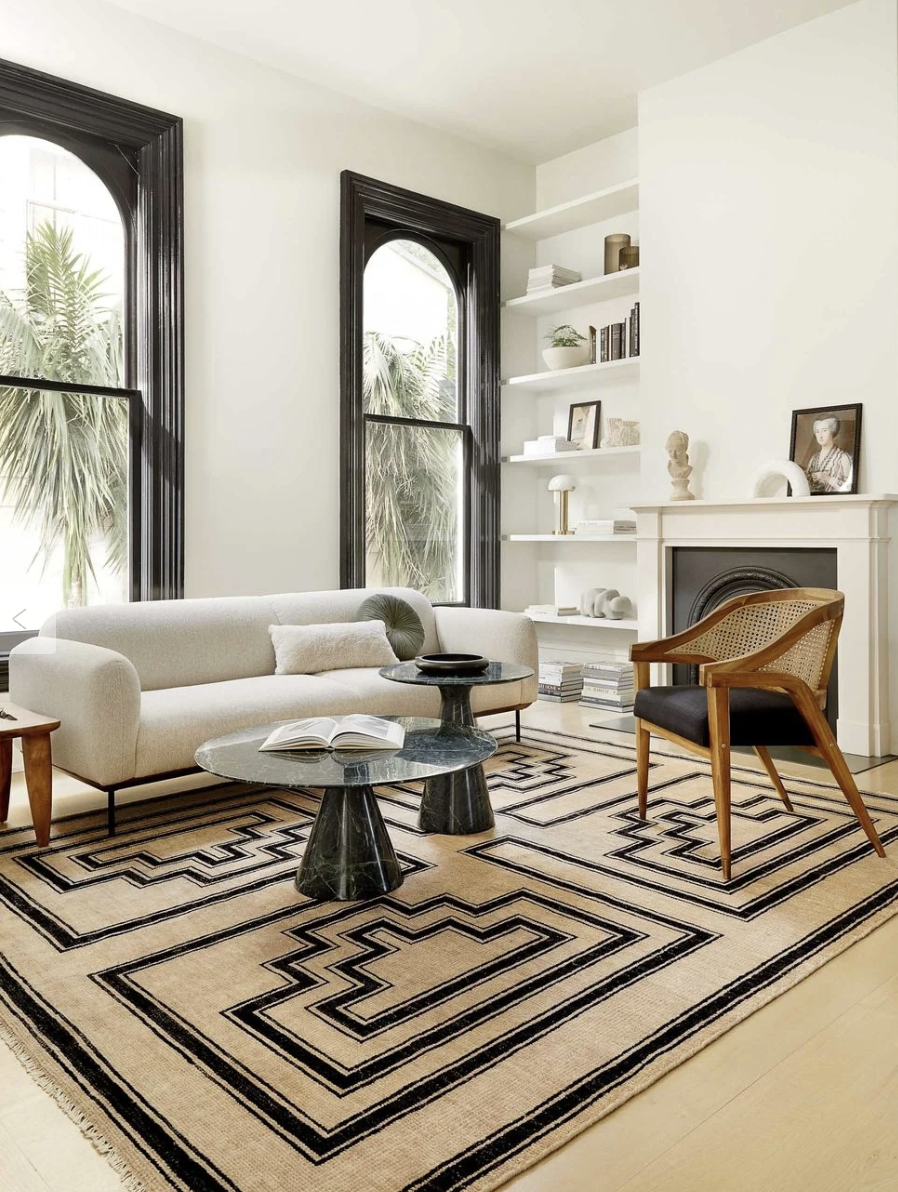The Art of Choosing a Rug With Intention
There are countless rules of thumb for choosing a rug, what size to buy, what style fits your space, how it pairs with your furniture. But when you’re looking for something intentional, the best place to start is by asking: How does this rug affect our home and the people who made it? Here’s our simple framework at Livolia . . .
Start With the Material
Look for natural materials like 100% cotton, wool, jute, or hemp. These are biodegradable and gentle on indoor air quality. But don’t stop there, go a little deeper.
Is it certified organic? Look for GOTS (Global Organic Textile Standard).
Is it free of harmful chemicals? OEKO-TEX certification ensures it's been tested for toxicity.
Did you look beyond the title and into the details? Some rugs claim to be A Wool Rug in the title but the details reveal it is 70% wool and 30% polyester. Read More >
Ask About People
A truly thoughtful rug considers the human hands behind it.
Were workers paid fair wages?
Were they working under safe, humane conditions?
Are there third-party standards like Fair Trade or B-Corp affiliation?
Consider Environmental Practices
It’s not just about what the rug is made of—but how it’s made and moved.
How far did it travel?
Does the manufacturer use renewable energy?
Are water use and waste minimized in the factory?
Does the brand offer take back programs?
These small questions help you reconnect with the life cycle of what you bring into your home. At Livolia, we believe the best design choices are rooted in awareness, not overwhelm. A rug is never just a rug, it’s a part of your daily life, and the wider world. Want to go deeper. Here are additional certification to look, about them and why.
These certifications and social compliance audits relate to how rugs and the broader supply chains involved in their creation—impact the people making them. Here's what each one means specifically in the context of rugs:
1. Fair Trade (Fair Trade Certified or WFTO)
What it means for rugs:
Ensures fair wages and safe working conditions for artisans and workers, often in developing countries.
Promotes community development, with a portion of profits reinvested into local projects.
Supports transparency and traceability in the supply chain.
Often handwoven rugs from India, Nepal, or Morocco carry this label to certify they were made without exploitative labor or child labor.
Why it matters:
Fair Trade certification helps protect rug weavers who are often women in rural areas, from exploitation, while preserving traditional craftsmanship.
2. BSCI (Business Social Compliance Initiative)
What it means for rugs:
A set of social standards focused on improving working conditions in the global supply chain.
Covers working hours, fair compensation, no forced or child labor, health and safety, and environmental protection.
BSCI audits are not a certification, but an ongoing improvement framework.
Why it matters:
BSCI applies to rug factories and suppliers, helping ensure workers are treated with dignity and that manufacturers are held accountable for labor practices.
3. ELEVATE
What it means for rugs:
A global auditing and consulting organization (formerly known as STR) that performs social, environmental, and ethical audits.
Measures factory-level compliance with labor laws, health and safety standards, and working conditions.
Often used by larger brands as a third-party audit system.
Why it matters:
If your rug was made in a larger production facility, an ELEVATE audit can signal that basic labor rights and environmental regulations are being met, even if no formal certification label appears.
4. Amfori Social Compliance (also tied to BSCI)
What it means for rugs:
Amfori is the organization behind BSCI, so their standards align closely.
Participating rug producers commit to continuous improvement in social performance, focusing on freedom of association, no discrimination, fair wages, and occupational safety.
Why it matters:
If a rug supplier is part of Amfori, it shows a commitment to better practices, though it doesn’t necessarily mean certification—more a signal of improvement and responsibility.
Related Reads:
What Is Intentional Design? A Return to Place, Rhythm, and Meaning
External Resources:
Global Organic Textile Standard (GOTS)
OEKO-TEX®




